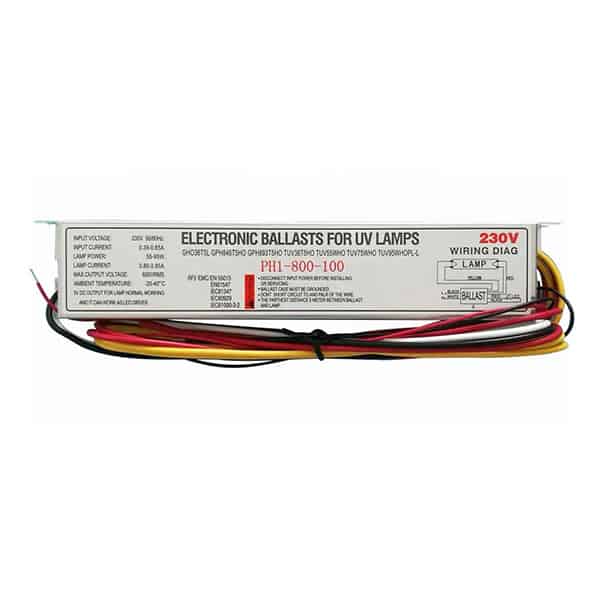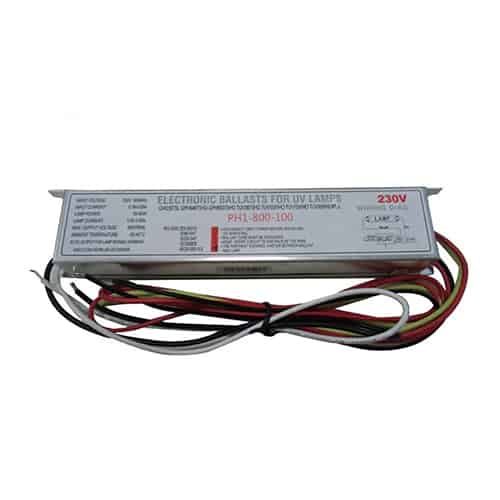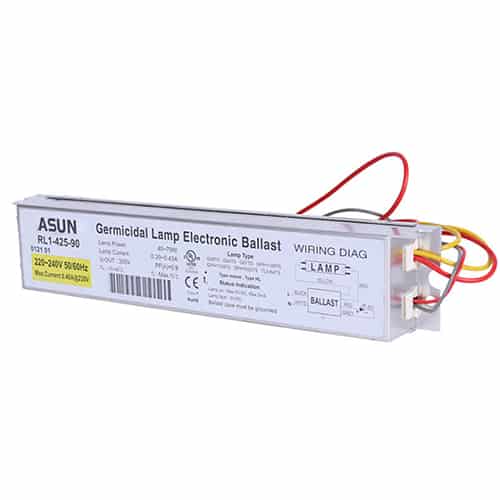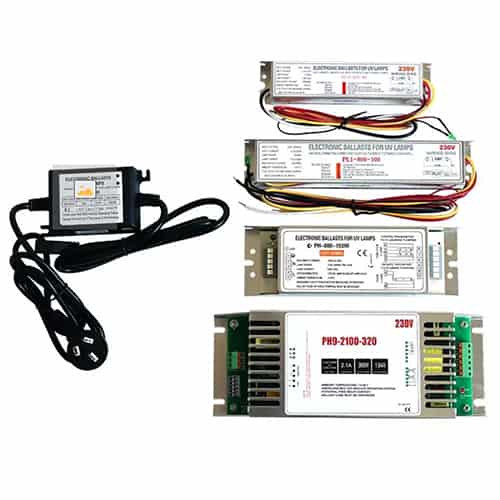Using the wrong light ballast will reduce the efficiency and life of the lamp. You need to understand the compatibility between ballasts and lamps to get the right light.
An F34 ballast may work with T8 lamps, but it’s not the best choice. You can use a ballast designed for F34 lamps with T8 lamps, but you’ll have performance issues. An example would be reduced efficiency and a shorter lamp life.
You need to understand ballast-lamp compatibility to get the right light and get it to last.
What is a F34 Ballast?
The F34 ballast is designed to power F34 T12 fluorescent lamps, a popular choice for older lighting systems. These ballasts are typically used with T12 lamps, which are 1.5 inches in diameter and were commonly found in office and industrial settings. The F34 ballast was created to support energy-saving T12 lamps that run on reduced wattage, specifically 34 watts instead of the usual 40 watts. This ballast enables energy savings for older systems while maintaining acceptable lighting performance for T12 lamps.
However, F34 ballasts are specifically tuned for F34 lamps, and using them with T8 lamps can lead to several issues. Since T8 lamps differ in terms of wattage, size, and operating conditions, using the wrong ballast can cause inefficiencies. Although the system may still work, it won’t perform optimally, and problems like diminished light output and reduced lamp lifespan are likely.
T8 Lamps and Their Ballast Requirements
T8 lamps are a newer, more efficient fluorescent option compared to the older T12 versions. T8 lamps have a diameter of 1 inch and typically operate at 32 watts, making them more energy-efficient while providing better lighting quality. As they are commonly used in modern commercial, industrial, and retail settings, T8 lamps have become the go-to choice for those looking to upgrade lighting systems for better performance and reduced power consumption.
Unlike T12 lamps, which often rely on magnetic ballasts like the F34, T8 lamps are best paired with electronic ballasts. These ballasts provide smoother power regulation, reduce flickering, and minimize energy loss. By operating at higher frequencies, electronic ballasts deliver steady, consistent power to T8 lamps, ensuring optimal brightness, longevity, and energy savings. Without the right ballast, T8 lamps cannot achieve their full potential in terms of efficiency and performance.
Why an F34 Ballast Might Not Be Suitable for T8 Lamps
One of the primary issues with using an F34 ballast for T8 lamps is the difference in wattage. F34 ballasts are designed to power 34-watt T12 lamps, while T8 lamps generally operate at 32 watts. While this wattage discrepancy may seem small, it can have significant effects on lamp performance. Using a ballast with a higher wattage output than the lamp requires can result in overdriving the lamp, which can reduce its lifespan and increase the risk of malfunction.
Another key difference lies in the type of ballast used. F34 ballasts are magnetic, while T8 lamps perform best with electronic ballasts. Magnetic ballasts are less efficient, heavier, and more prone to operational issues such as flickering and humming. In contrast, electronic ballasts deliver consistent, flicker-free performance and ensure that the T8 lamps operate efficiently. When paired with a magnetic F34 ballast, T8 lamps are likely to experience reduced light output and higher energy consumption.
Consequences of Using an Incompatible Ballast
The most significant consequence of using an F34 ballast with T8 lamps is a reduction in the lifespan of the lamps. When a ballast does not match the wattage and performance needs of a lamp, it can cause the lamp to burn out prematurely. Over time, this mismatch leads to a higher rate of lamp replacement, which increases both maintenance costs and downtime in environments where consistent lighting is critical, such as offices or retail spaces.
In addition to shortened lifespan, there can be energy inefficiency. T8 lamps are designed for energy-saving operation, but when used with an incompatible ballast, their energy savings are negated. The ballast may cause the system to draw more power than necessary, increasing electricity consumption and operational costs.
Furthermore, mismatched ballasts can lead to poor light quality. T8 lamps paired with an F34 ballast may produce dim or inconsistent lighting, which can impact the usability of the space. In environments that require uniform and bright lighting, such as warehouses, offices, or production floors, inadequate lighting can negatively affect both productivity and safety.
Proper Ballast Choices for T8 Lamps
To get the most out of T8 lamps, it’s essential to pair them with electronic ballasts specifically designed for their requirements. Electronic ballasts help maintain consistent power flow, prevent flickering, and regulate the lamp’s performance to ensure optimal brightness and energy efficiency. These ballasts are also lighter, more efficient, and less noisy than their magnetic counterparts, making them ideal for use in both residential and commercial environments.
Upgrading from F34 ballasts to electronic ballasts is a straightforward process, especially with many retrofit kits available on the market. These retrofit kits are designed to replace outdated magnetic ballasts with modern electronic ones, allowing for a seamless upgrade without the need for major system overhauls. Switching to electronic ballasts not only improves lamp performance but also helps reduce energy consumption and maintenance costs in the long term. Moreover, electronic ballasts tend to have a longer lifespan, reducing the need for frequent replacements.
Final Words:
Pair T8 lamps with their appropriate electronic ballasts for peak lighting and energy efficiency.




